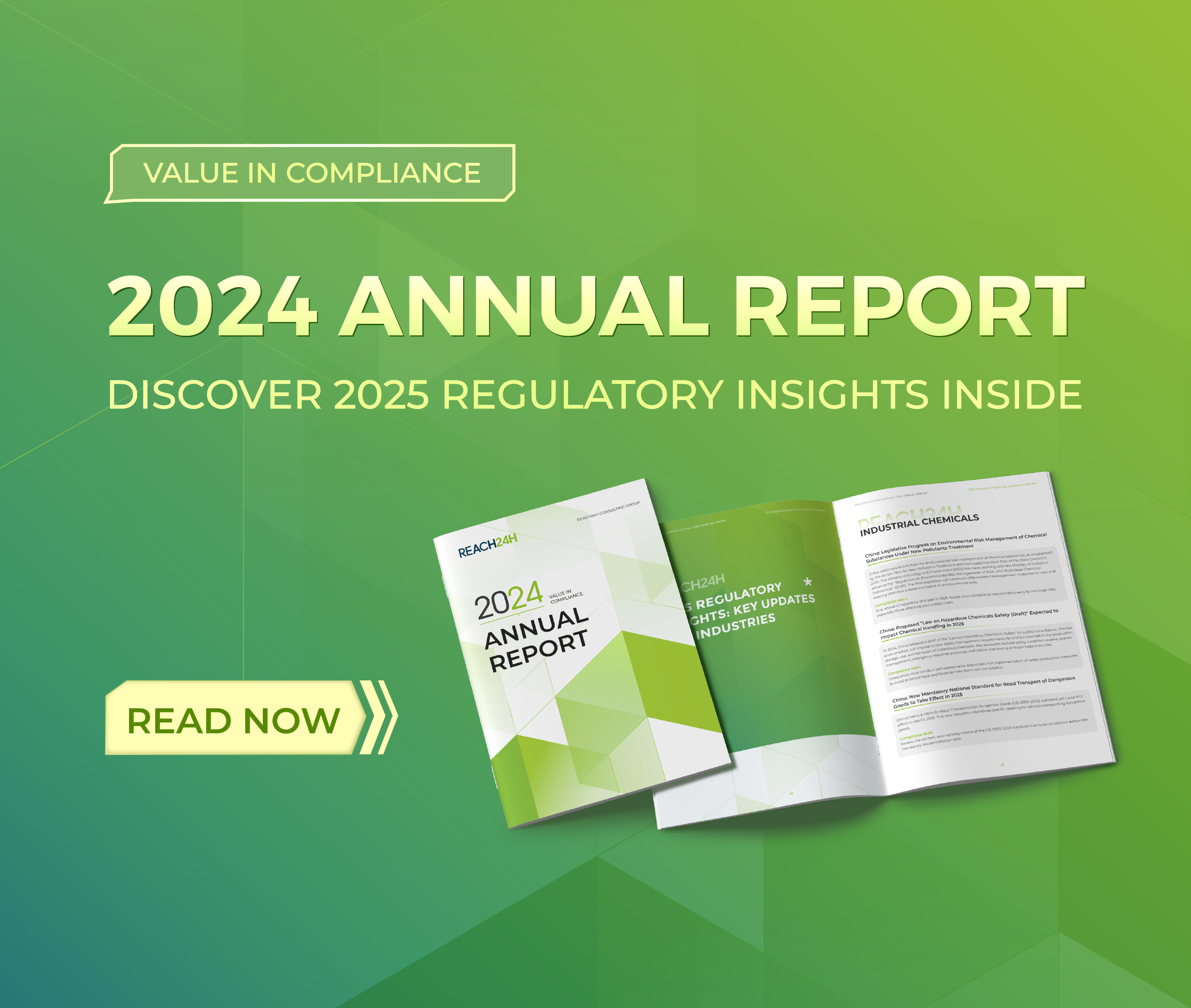Food Contact Notification(FCN) News in September
According to FDA official website, 6 food contact notifications (FCN) have been approved by FDA in September, and their information is shown in the table below:
|
Notifier |
Effective Date |
Name of The Substance |
Intended Use |
Limitations/Specifications |
| Danxia Chemicals Factory Co., Ltd. |
Sep 1,2017
|
2,2′-(1,4-phenylene)bis-[4H-3,1-benzoxazin-4-one] (CAS Reg. No. 18600-59-4). REPLACES FCN 1652. |
As an ultraviolet (UV) light stabilizer in ethylene phthalate (PET) polymers, complying with 21 CFR 177.1630 (Polyethylene phthalate polymers), except for use in contact with infant formula and human milk (see Limitations/Specifications).
|
The substance will be used at levels not to exceed 1.0% by weight in PET polymers for single and repeat use in contact with all food types under Conditions of Use C through G, as described in Tables 1 and 2. The PET polymers will comply with 21 CFR 177.1315, 177.1630, or effective FCNs. The finished food contact articles will not be used in contact with infant formula or human milk. Such uses were not included as part of the intended use of the substance in the FCN. |
|
Eltron Research & Development, LLC.
|
Sep 8,2017
|
An aqueous mixture of peroxyacetic acid, (CAS Reg. No. 79-21-0), hydrogen peroxide (CAS Reg. No. 7722-84-1), glycerol (CAS Reg. No. 56-81-5), and optionally acetic acid (CAS Reg. No. 64-19-7) or sulfuric acid (CAS Reg. No. 7664-93-9). |
As an antimicrobial to control microorganisms in process water used during the commercial preparation of processed meat and poultry, fish and seafood, and fruits and vegetables that are not raw agricultural commodities. |
The FCS will be added to process water as a spray, dip, ice chiller water or scald water for washing, rinsing, or cooling meat, poultry, fish and seafood, and fruits and vegetables that are not raw agricultural commodities. Final at-use concentrations of peroxyacetic acid and hydrogen peroxide are limited to: 1.1800 ppm peroxyacetic acid and 1215 ppm hydrogen peroxide in water for whole and cut meat carcasses, parts, trim, and organs; 2.2000 ppm peroxyacetic acid and 1474 ppm hydrogen peroxide in water for whole or cut poultry carcasses, parts, trim, and organs; 3.230 ppm peroxyacetic acid and 165 ppm hydrogen peroxide in water for fish and seafood; and 4.350 ppm peroxyacetic acid and 525 ppm hydrogen peroxide in water for fruits and vegetables that are not raw agricultural commodities. |
|
Addivant
|
Sep 13, 2017
|
Phosphorous acid, mixed 2,4-bis(1,1,-dimethylpropyl)phenyl and 4-(1,1-dimethylpropyl)phenyl triesters (CAS Reg. No. 939402-02-5). |
As an antioxidant in styrene block polymers. |
The FCS may be used at levels up to 0.2 percent by weight in authorized styrene block polymers. Articles containing the FCS may contact all foods under Conditions of Use A through H. The FCS may be used in conjunction with triisopropanolamine (CAS Reg. No. 122-20-3) at a maximum use level of 0.75 percent by weight of the FCS. |
|
Biosan, LLC |
Sep 13, 2017
|
An aqueous mixture of peroxyacetic acid (CAS Reg. No. 79-21-0), hydrogen peroxide (CAS Reg. No. 7722-84-1), acetic acid (CAS Reg. No. 64-19-7), 1-hydroxyethylidine-1,1-diphosphonic acid (CAS Reg. No. 2809-21-4), and optionally sulfuric acid (CAS Reg. No. 7664-93-9).
|
As an antimicrobial agent in: (1) process water or ice used to commercially prepare fish and seafood; (2) brines, sauces, and marinades applied either on the surface or injected into processed or unprocessed, cooked or uncooked whole or cut poultry, and (3) surface sauces and marinades applied on processed and preformed meat and poultry products as described in 21 CFR 170.3(n)(29) and (34). |
The components of the FCS mixture will not exceed: 1.230 ppm peroxyacetic acid, 110 ppm hydrogen peroxide, and 15 ppm 1-hydroxyethylidine-1,1-diphosphonic acid (HEDP) on fish and seafood; 2.50 ppm peroxyacetic acid, 18 ppm hydrogen peroxide, and 6 ppm as HEDP on processed or unprocessed, cooked or uncooked whole or cut poultry; and 3.50 ppm peroxyacetic acid, 18 ppm hydrogen peroxide, and 6 ppm as HEDP on processed and preformed meat and poultry. |
|
Cabot Corporation |
Sep 16, 2017
|
High-purity furnace black (CAS Reg. No. 1333-86-4).
|
For use as a component of adhesives as described in 21 CFR 175.105(b)(5); for use as a colorant in resinous and polymeric coatings as described in 21 CFR 175.300(b)(3)(xxvi); for use as a colorant in paper and paperboard in contact with aqueous and fatty foods as described in 21 CFR 176.170(b)(2); for use as a colorant in paper and paperboard in contact with dry food as described in 21 CFR 176.180(b)(1); and for use as a colorant for polymers as described in 21 CFR 178.3297(e); except for use in contact with infant formula and human milk (see Limitations/Specifications). |
The FCS will be used at levels not to exceed the minimum required to accomplish the intended technical effect. The FCS is not for use in contact with infant formula and human milk. Such uses were not included as part of the intended use of the substance in the FCN. |
|
Akzo Nobel Pulp and Performance Chemicals AB, Expancel
|
Sep 19, 2017 |
Acrylonitrile-methacrylonitrile-methyl acrylate-trimethylolpropane trimethacrylate copolymer (CAS Reg. No. 945921-84-6).
|
As a component of agglomerated cork stoppers used as closures for alcoholic beverage bottles.
|
The FCS will be used at a level not to exceed 10 weight percent of the stoppers used as closures for bottles intended to hold beverages containing up to 50 percent alcohol by volume under Conditions of Use D through G, as described in Table 2. |
REACH24H has rich experience in dealing with United States food contact materials (FDA /FCN / 21 CFR) and EU food contact materials (EU 10/2011/BfR) and can make custom-made compliance service for enterprises. If you have further questions, please consult +86 571-8196 9942 or send e-mail to wangfang@reach24h.cn.


